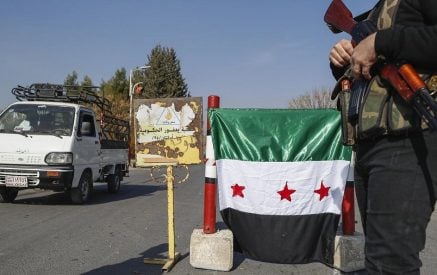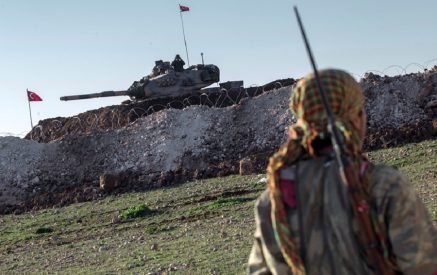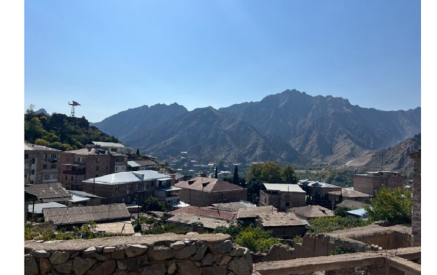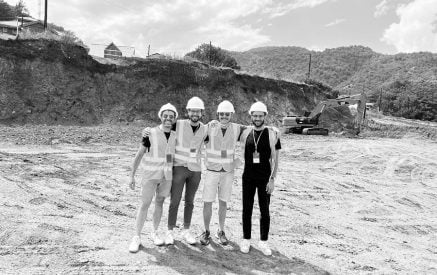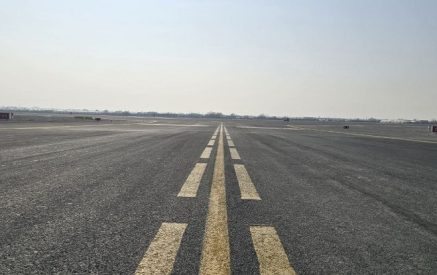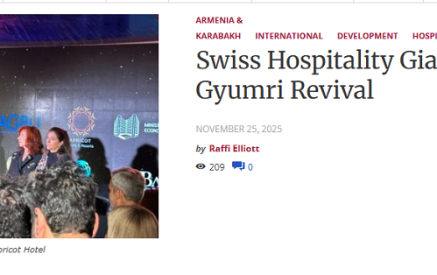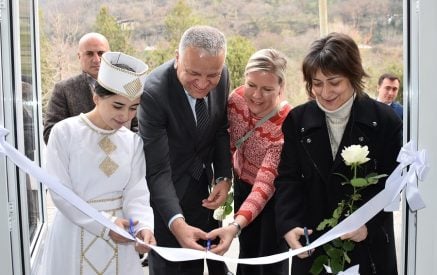Political scientist Gagik Hambaryan doesn’t rule out that it will be so
Armenian businessmen living in Aleppo, the economic capital of Syria, will continue prospering that country, if it comes out what policy the Syrian opposition is going to pursue toward the local Christians. Political scientist Gagik Hambaryan thinks this way. “Here, it is important whom the Syrian opposition is consisted of and if they succeed in toppling Bashar al-Assad, what policy they will pursue toward Christians. As we know, the revolution in Egypt was led by an organization called Muslim Brotherhood; their position in Syria is also strong. The Christian community in Egypt is mostly represented by Copts who had serious clashes with the members of the same Muslim Brotherhood who wanted to weaken the position of the Copts and limit their tights in Egypt after the revolution too. It is not ruled out that the same forces that will come to power in Syria will also try to redistribute the Armenians’ property, so to say, cut them down to size, to show who they are in a Muslim country and this will cause many Armenians to leave Syria, to leave for either Lebanon or the Western European countries and the US. Quite a lot of Armenians who live in Syria hold double citizenship and many of them are citizens of the US,” our interlocutor said.
Gagik Hambaryan doesn’t rule out that Turks will play a certain role in the dirty deed of deporting Syrian Armenians. “If we take into account the interests of the Turkish state and the forces supported by it in Syria, it is by no means ruled out that the Turkish government will instruct those same opposition groups, which they sponsor, to create unbearable conditions for Armenians, in order that the latter emigrate to other countries and that Syria is actually left without its Armenian Christian minority.” According to our interlocutor, according to unofficial data, 75 000-85 000 Armenians live in Syria, the majority of which lives in the epicenter of military operations – city of Aleppo. Only 2500-3000 of them have come to Armenia, which, according to Gagik Hambaryan’s description, is a drop in the ocean. According to the political scientist, Syrian Armenians prefer leaving for neighboring Lebanon these days, rather than coming to the fatherland. “If they knew that they were protected here, certainly, they would come, but it is preferable for Armenians to stay in Syria these days, to protect their more or less unharmed property and not to have problems with returning or with money in the future. They take into account the Iraq story too, the Diaspora Armenians saw very well what happened to the Armenians who emigrated from Iraq and as of now, when fierce battles take place in Syria, our Syrian Armenians prefer to stay there and not to migrate to the historical fatherland, because they don’t receive the necessary aid and support they should receive at all. The Iraq story, when thousands of Armenians left Iraq for the Western European countries and the US, may repeat in Syria.” According to our interlocutor, there are objective and subjective reasons, for which Syrian Armenians don’t come to the fatherland. The objective reason is perhaps that the citizen of the Republic of Armenia cannot find a job in his own country, let alone the one who has emigrated from Syria. The subjective reason, according to him, is that the government of the Republic of Armenia hasn’t devised strategic programs for Armenians returning to the fatherland, “There is no program on what they should do with those Armenians – I am talking about the Diaspora – who can find themselves in a difficult position in case of force majeure situations. For example, the state of Israel, which has an enormous diaspora, also has such programs on how it can protect and ensure the safety and physical existence of the compatriots on its country’s territory in case of force majeure situations in a certain country.” In response to our observation that the program carried out by the Ministry of Diaspora, which is called Come Home, is nothing but a means to bring Diaspora Armenians to the fatherland, the political scientist said, “I for instance cannot call the program Come Home an all Armenian program, this is rather a program to awake patriotic feelings among few Armenians, I want to ask a question – how many hundreds or thousands of Armenians have returned to Armenia, have started their businesses here and moved here? There is no such thing, there can be no such thing in the near future either, because if there is a huge emigration to other countries from the same Armenia, what can one expect? Will the Syrian Armenian who can earn at least $4000-$5000 every month come to Armenia, where the prices of food and nonfood products are higher and he has no job here? I know a case, when people have come from Syria with $5000 in their pockets, stayed here and those $5000 have run out completely within a month and they don’t know what to do. Besides our fellow countrymen take the opportunity and increase the service prices, for example, rent prices.” Whereas, according to the political scientist, Syrian Armenians cannot withstand such an attitude – they have a high status in Syria both politically and economically, not only do they do business, but they are also engaged in the executive and legislative bodies, there is even an Armenian minister in that country’s Cabinet. “Since as early as when Hafez Assad was in power – I am talking about Bashar al-Assad’s father – Armenians have enjoyed high standing in the Syrian state. The Alawi government has always been tolerant to Armenians, has done everything so that Armenians feel well, develop in this region and Armenians have always been grateful to the Syrian government for that attitude toward them. Now Armenians are not participating in the civil war at all, they don’t join either side, they prefer not to be involved in military operations, although let me say that anti-Assad forces do everything they can to involve Armenians in the war,” the political scientist said.
Read also
NUNE AREVSHATYAN




















































